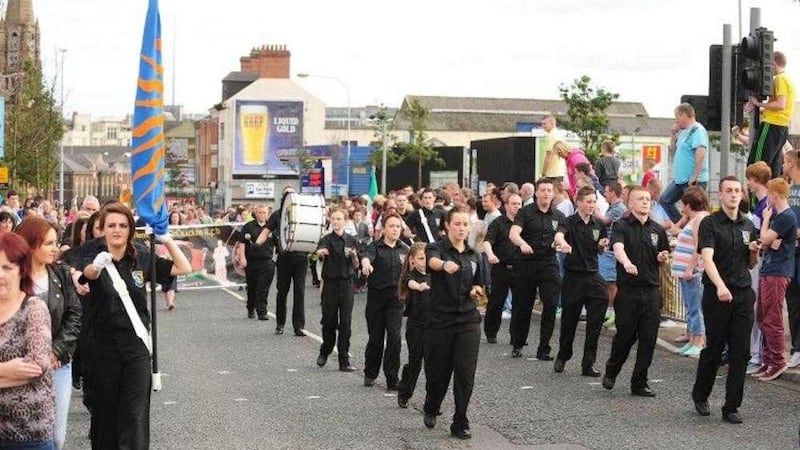A study into republican band culture has found the practice could die out with young people no longer signing up to join because of the 'stigma' attached.
The Northern Ireland Youth Forum carried out the research producing a report called Mise Eire/I am Ireland, talking to members of six republican bands about their experiences.
The report follows on from a previous study carried out by NIYF into loyalist marching bands.
It found that while loyalist band culture is on the increase and embraced by working class communities, members of republican bands felt they were in many cases shunned by their own community who view them as 'dissident'.
Those interviewed varied in age from 13 to 21-years-old and while all said the band had a positive impact on their lives - teaching them how to read music and giving them a sense of belonging - they also spoke of the negative public perception of republican bands.
One young person spoke of marching along the Falls Road at the annual Easter parade and said that the band was a place you could "in a fun and united way celebrate your culture".
"The band is our culture, so by being part of it and taking part in parades and commemorations publicly then we are living our culture", one band member said.
"If it were not for the band then we would not be able to walk down the street displaying our flags, playing our music and celebrating historical events".
Of the 61 young people interviewed a number said that being in the band prevented them from being "led astray" and helped teach them discipline.
However, they recognised the difference between republican and loyalists bands both in perception, recruitment and fundraising.
One participant said; "Loyalist bands are light years ahead of republican bands in terms of funding".
"It's different in republican areas in terms of flute bands ... people just get on with their lives. On the loyalist side it's different, they are much more part of the community.
"Other people see you in the band and make their mind up about what type of person you are."
The report concluded that for some expressing 'mainstream republicanism' was becoming more challenging as the bands were associated with dissidents and "therefore violence".
Sean Feenan who helped compile the report said the bands had a mainly "positive influence on those who joined them"
However, added that the band members "do not feel they are supported by the wider community in the same way loyalist bands are".








